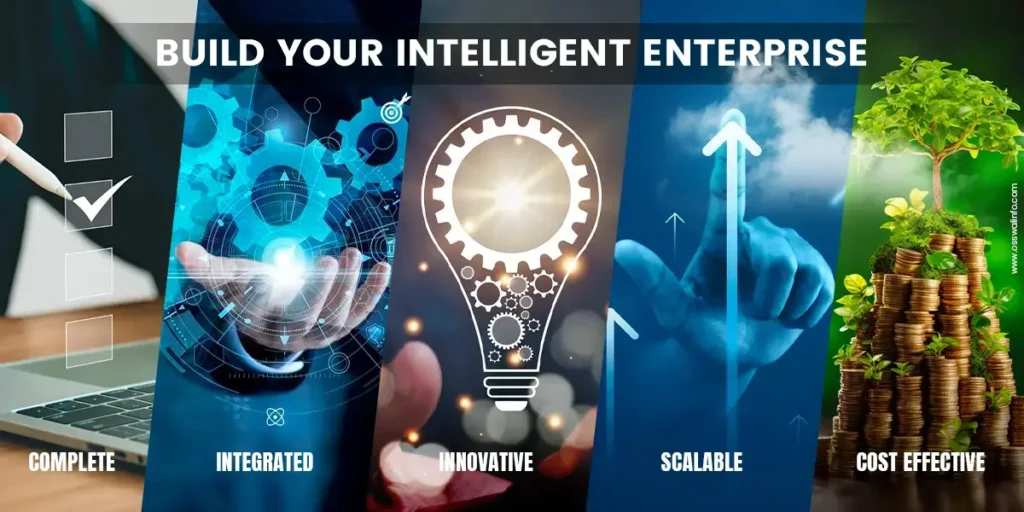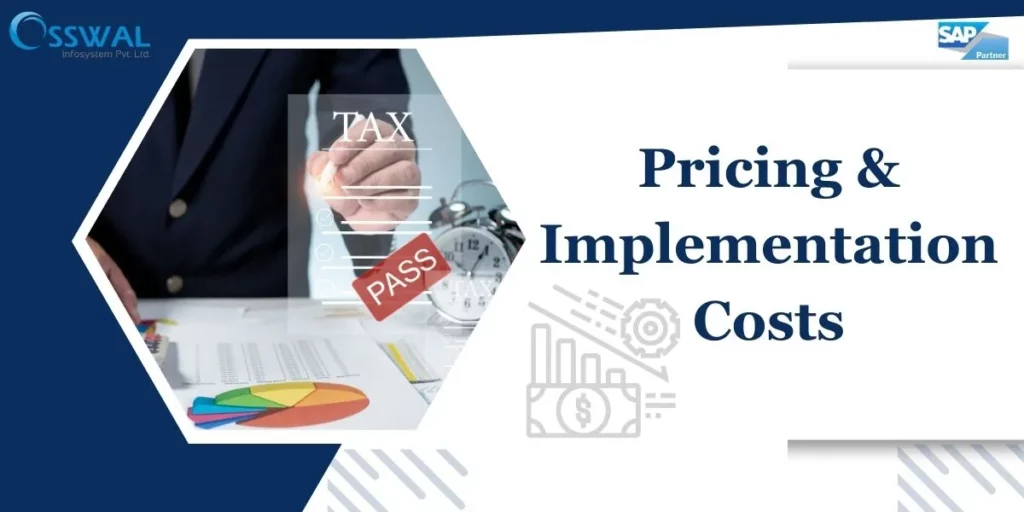It’s the 4.0 era of the industrial revolution. Today, being smart is not smart enough. The 21st-century industrial revolution is real. It is digital. For manufacturers, it is all about smart factory applications using advanced automation analytics and modern manufacturing technology. The future of production is all about industry 4.0 ERP process transformation using SAP for the manufacturing industry.
What is the role of SAP Manufacturing Automation Solution in supporting ERP Industry 4.0?
SAP modules for the manufacturing sector leverage the benefits of industry 4.0 ERP and provide flexible deployment choices, including on-premises, cloud, and mobile, to increase flexibility. Industry 4.0 ERP implemented on-premises complies with data security standards, and its cloud-powered counterpart is simple to install and scale across any cloud platform.
Manufacturing executives may easily access real-time data through online apps and mobile app compatibility, allowing them to manage company processes effectively anywhere. SAP B1’s extensive suite of SAP ERP modules facilitates ongoing product and service enhancement, hence providing clients with increased value.
Let’s discuss a few of the SAP modules designed for the manufacturing sector.
- Streamlined Purchase and Supply Chain Management
Manufacturers are empowered by SAP Business One’s effective supply chain and purchasing management features. Complete supply chain tracking and management, including order-to-pay purchase cycles, invoicing, credits, payments, and receipts, are made possible by the supply chain management module. In addition to providing value-added services like master data processing and accounts payable, the procurement module aligns the procurement process.
- Enhanced Customer Management
Personalized services are made possible for manufacturers by SAP Business One, which supports them over the whole client lifecycle. Manufacturers can use real-time client data to pinpoint individual needs and customize products, from initial prospecting and order placement to post-sale assistance. Customer satisfaction and loyalty are increased by the smooth administration of customers made possible by SAP manufacturing automation.
- Robust Financial Management
Manufacturers in the context of Industry 4.0 need total control over financial processes. With capabilities like seamless banking, reconciliation, financial reporting, and fixed asset management, SAP Business One automates accounting and financial management. SAP B1 helps manufacturers’ overall financial management by removing errors, increasing profit margins, and facilitating better financial decision-making.
- Optimal Warehouse Management
The warehouse management function of SAP B1 is essential for manufacturers with several sites. Companies can track inventory movements, maintain optimal inventory levels, guarantee cost-effective production, expedite delivery, and optimize inventory across several sites with real-time inventory management capabilities.
- Data Analytics and Reporting for Informed Decision-Making
In Industry 4.0, data analytics is essential to manufacturers’ success. SAP Business One makes Real-time, customizable reporting possible, giving producers quick access to vital industrial data. Business intelligence (BI) and data visualization are powered by efficient data analytics and reporting, which enable management teams to make deft decisions based on current information.

Industrial 4.0 Manufacturing: The Contemporary Role of SAP
The biggest problem facing manufacturers today is achieving industrial sustainability, which calls for a change to greener production, factory, and product offerings processes. It is not just about reducing emissions in operations and supply chains; it also involves providing goods and services that encourage consumers to adopt sustainable practices.
- The Industrial Internet of Things (IoT) and Industry 4.0 are currently becoming revolutionary forces. Artificial intelligence (AI), intelligent automation, and edge computing are examples of technologies that power intelligent and highly efficient factories and machinery and offer the visibility and transparency required to reduce emissions and comply with changing regulations.
- The adoption of service-based business models by industrial producers is contributing to the growing trend of servitization. Manufacturers who take on more responsibility for equipment maintenance guarantee maximum efficiency and have an incentive to produce easily recyclable goods that last longer, which is a major contribution to sustainability.
- Product innovation is at the forefront of sustainability initiatives, as highlighted by almost half of industrial businesses. Leading producers are investing resources in developing engines that can run on hydrogen to satisfy the growing consumer demand for environmentally friendly goods.
- Reuse, refurbishing, remanufacturing, and recycling of parts and products are all part of circular supply chains, which are key components of a more sustainable future. By utilizing cutting-edge technologies, producers can predict the future value of precious commodities like gold and aluminum and simulate revenue spanning several customer lifecycles, making sustainability a business decision and a moral one.
Manufacturers may easily manage vital business activities using SAP Business One, an all-inclusive ERP solution. Manufacturers can take complete control of their operations with its integrated modules, which saves money by removing the need for different solutions and preventing integration issues. Manufacturing organizations may increase productivity, simplify corporate processes, and concentrate on fostering growth and success by utilizing SAP B1 modules from Osswal Infosystem, the top ERP software provider in India.




